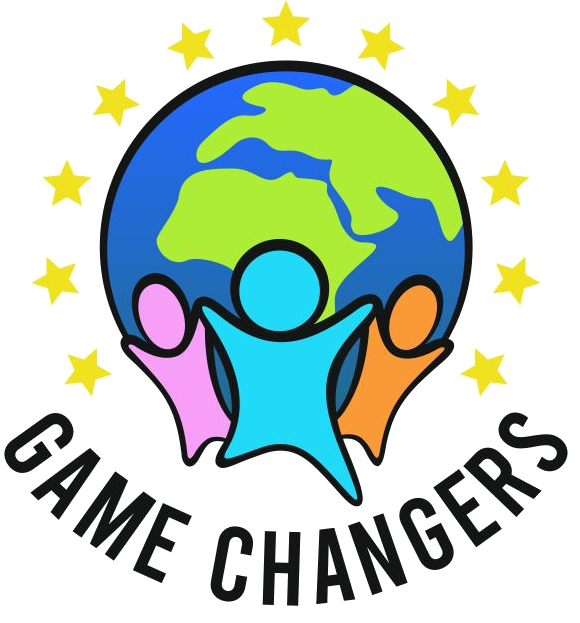The Game Changers Network was looking for innovative and attractive ways to involve studentsin the project activities. We invited all partners to a remote game: „Detectives around Europe” (The Game Changers Guide) . We proposed a game within the project. The „pandemic game” was supposed to be a background for student`s work on political and democratic issues.
In this phase, we first created a guide to virtual game: Virtual misssions Political detectives and open school scene were changing rapidly: the political detection scene was moving into a global virtual scene. Student team acted as politics take place in the global virtual world, including through social networks.
During game, the students teams will be completing by each other completing six different task while „travelling around Europe” (on Google My Maps. Students will be encouraged to get to know each other, work togheter, cooperate. This will happen especially during three online meetings. In every location, students will have one month tho complete one task.
How did we prepare remote game?
- We prepared game board on Google My Maps –Detectives
2. We created the politics detectives scenario with mechanic and rules of the game
3. Then we prepared The Game Changers Guide for students: Detectives around Europe with the tasks.
Ideas for the tasks for students included:
- Icebreaking – making a video. The first task was to keep the students motivated and engaged by getting to know the team members better. Team members presented themselves, but impersonating a chosen character from the political scene. Students were asked to make a video presenting membersof their teams to other project partners.
• The power of the school council – making a presentation (video/ ppt/ digital storytelling). Students were asked to imagine that the school council in their school has unlimited power and can make any change they want. The task for students was to make a presentation about how the school from their dreams would look like.
• Getting to know project partners’ countries – making a presentation (video/ ppt/ digital storytelling/ etc.). Students were asked to become tourist guides and to present their home countries to others. Based on this, teams should prepare some questions about their countries and other teams will have to answer the quiz correctly in order to collect points.
• Other country in my homemaking a video. Students were asked to choose one country they got interested in during the previous task and to organize their every – day activities as if they were living in this country.
• Dealing with fake news – creating a post on Instagram. Students were asked to find out differences between real and fake news and create some news themselves.
• Hearing (in court) – discussion online. Students were asked to discuss climate change. Teams will be informed what roles they will be playing during the hearing (judge, jury, attorney, prosecutor, witness, accused). They will have to preapre to play they role beforehand. The hearing should take place online.
OPEN SCHOOLING
At this stage, students held dialogues with members of the local community, diverse range of community actors (for example, an interview with the mayor) including politicians, political parties, alternative groups, citizens, and individuals associated with perceived community probles, i san essential component of student detective work.
EP member: join Future of Europe
The Game Changers Network had a fruitful discussion with the member of the European Parliament, Maria Spyraki, about open schooling in secondary school and how it could contribute to engaging youth in politics, democracy, and EU values. Maria Spyraki congratulated the Game Changers Network and inited join the Future of Europe platform. Thos meeting was organized by PLATON M.E.P.E (Greece). This meeting was a unique possibility to present Game Changer project at the international level and to engage young students in
politics based on their own interests.
Discussion and debating
In the project we created a guide with tips for students to help them understand how to have discussions and conduct debates. The school – Osnova sola Staneta Zagarja Lipnica (Slovenia) ran a school parliament in which students discussed and debated important issues concerning the school, projects and world challenges.
To be able to understand that in practice and to inspire ourselves to be deep thinkers, school partners organized the oxfrod debates under different topic: “Women are Better Politicians than Men” and also young students were beginning to explore complex global topics such as African migrants coming to Europe.
